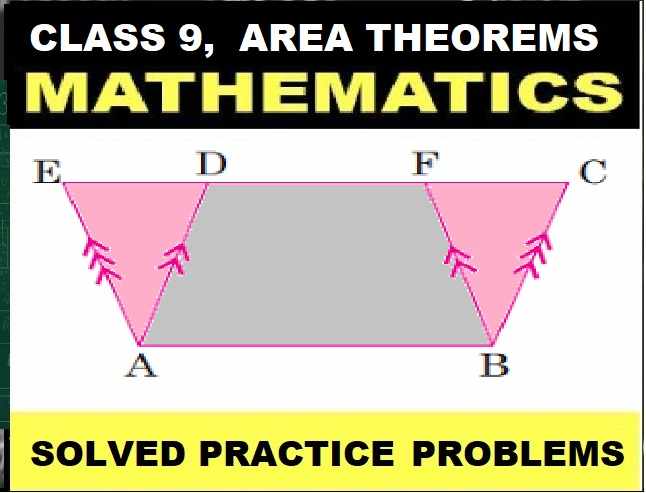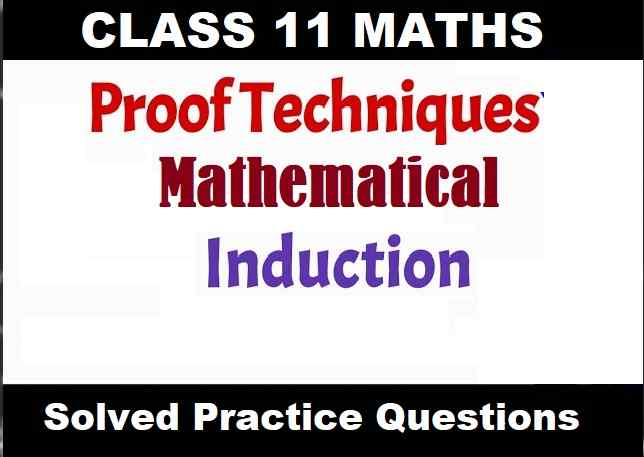Study of First Element Hydrogen Exe-6C Chemistry Class-9 ICSE Selina Publishers Solutions Chapter-6. Step By Step ICSE Selina Concise Solutions of Chapter-6 Study of First Element Hydrogen with All Exercise including MCQs, Very Short Answer Type, Short Answer Type, Long Answer Type, Numerical and Structured/Application Questions Solved . Visit official Website CISCE for detail information about ICSE Board Class-9.
Study of First Element Hydrogen Exe-6C Chemistry Class-9 ICSE Concise Selina Publishers
| Board | ICSE |
| Publications | Selina Publication |
| Subject | Chemistry |
| Class | 9th |
| Chapter-6 | Study of First Element Hydrogen |
| Book Name | Concise |
| Topics | Solution of Exercise – 6C |
| Academic Session | 2023-2024 |
C. Exercise – 6C
Study of First Element Hydrogen Class-9 Chemistry Concise Solutions
Page-114
Question 1.
(a) Where does hydrogen occur in free state?
(b) How did the name ‘hydrogen’ originate?
Answer:
(a) In the free state, hydrogen is found in traces in the earth’s crust and atmosphere. Volcanic gases contain 0.025%, the earth’s crust 0.98%, the earth’s atmosphere 0.01% and the atmosphere of the Sun and stars 1.1%.
(b) The name ‘hydrogen’ originated on account of its ability to form water.
Question 2.
Hydrogen can be prepared with the help of cold water. Give a reaction of hydrogen with:
(a) A monovalent metal
(b) A divalent metal
Answer:
(a) 2K + 2H2O →2KOH + H2
(b) Ca + 2H2O → Ca(OH)2 + H2
Question 3.
Which metal is preferred for collecting hydrogen from:
(a) Cold water
(b) Hot water
(c) Steam
Write balanced equation for each case.
Answer:
Metal preferred for collecting hydrogen from
(a) Cold water: Sodium
(b) Hot water: Magnesium
(c) Steam: Aluminium
Question 4.
Hydrogen may be prepared in the laboratory by the action of a metal on an acid.
(a) Which of the metals copper, zinc, magnesium or sodium would be the most suitable?
(b) Which of the acids dilute sulphuric, concentrated sulphuric, dilute nitric acid and concentrated nitric acid would you choose? Explain why you would not use the acids you reject.
(c) How would you modify your apparatus to collect dry hydrogen? Which drying agent would you employ for this purpose?
Answer:
(a) Zinc is the most preferred metal in the laboratory preparation of hydrogen.
(b) Dilute sulphuric acid.
Conc. nitric acid, even in its dilute form, is not used in the preparation of hydrogen from metals because it is a powerful oxidising agent and oxygen formed due to its decomposition oxidiseshydrogen to give water, thus defeating the purpose of the reaction.
Conc. sulphuric acid is not used in the preparation of hydrogen as it will produce sulphur dioxide.
(c) The gas is collected by the downward displacement of water.
Common drying agents such as fused calcium chloride, caustic potash stick and phosphorus pentoxide remove water vapour.
Question 5.
Why are the following metals not used in the lab. preparation of hydrogen?
(a) calcium
(b) iron
(c) aluminium
(d) sodium
Answer:
(a) Calcium is expensive.
(b) Iron has to be heated, and hydrogen thus produced contains impurities such as hydrogen sulphide and sulphur dioxide.
(c) Aluminium forms a protective coating of Al2O3 due to its great affinity for oxygen. So, it does not give hydrogen with acid after the reaction has occurred for some time.
(d) Sodium reacts violently with acid.
Question 6.
Based on the reactions of water on metals, arrange the following metals in increasing order of reactivity: iron, sodium, magnesium, zinc, calcium
Answer:
Increasing order of reactivity of metals:
Iron < Zinc < Magnesium < Calcium < Sodium
Question 7.
Hydrogen is evolved when dilute HCl reacts with magnesium, but nothing happens in the case of mercury and silver. Explain.
Answer:
Hydrogen is evolved when dilute HCl reacts with magnesium which is placed above hydrogen in the activity series. However, this does not occur for metals below hydrogen such as mercury and silver. This is because only metals which are more reactive than hydrogen can displace it from HCl.
Question 8.
Steam can react with metal and non-metal to liberate hydrogen. Give necessary conditions and equations for the same.
Answer:
With metals:
3Fe + 4H2O ⇋ Fe3O4 + 4H2
With non-metals:
Steam is passed over hot coke (1000°C) in furnaces of a special design called inverters giving water gas.
C + H2O (CO + H2) – ∆
Water is mixed with excess steam and passed over heated ferric oxide which acts as a catalyst and chromic oxide which acts as a promoter.
(CO + H2) + H2O CO2 + 2H2 + ∆
The above mixture CO2 + H2 is formed through cold water under pressure (30 atm) or through caustic potash solution, which dissolves the more soluble carbon dioxide leaving hydrogen.
2KOH + CO2 →K2CO3 + H2O
The mixture is passed through ammoniacal cuprous chloride solution in order to dissolve any uncombined carbon monoxide.
CuCl + CO + 2H2O →CuCl.CO.2H2O
Question 9.
Hydrogen is obtained by displacement from:
(a) dilute sulphuric acid
(b) dilute hydrochloric acid
Write equations using zinc and iron.
Why does copper not show similar behavior?
Answer:
(a) Zn + H2SO4 → ZnSO4 + H2
(b) Fe + H2SO4 → FeSO4 + H2
Hydrogen cannot be prepared from metals which are below it in the activity series of metals such as copper because only metals which are more reactive than hydrogen can displace it from acids.
Question 10.
Give reason for the following:
(a) Though lead is above hydrogen in the activity series, it does not react with dilute hydrochloric acid or dilute sulphuric acid.
(b) Potassium and sodium are not used for reaction with dilute hydrochloric acid or dilute sulphuric acid in laboratory preparation of hydrogen.
Answer:
(a) It forms an insoluble coating of lead sulphate or lead chloride. So, further reaction is prevented.
(b) Potassium and sodium react violently with acid. Hence, potassium and sodium are not used for reaction with dilute hydrochloric acid or dilute sulphuric acid in the laboratory preparation of hydrogen.
Question 11.
Name two alkalies that can displace hydrogen. Give balanced equations for the same. Why are the metals you have used considered to have unique nature?
Answer:
NaOH and KOH
Zn + 2NaOH → Na2ZnO2 + H2
Zn + 2KOH → K2ZnO2 + H2
Metals such as zinc, lead and aluminium have a unique nature. They react with acids and can even react with hot alkalis to form hydrogen and a soluble salt.
Question 12.
Complete and balance the following reactions.
(a) Na + H2O →_____________ +___________
(b) Ca + H2O →_____________ +___________
(c) Mg + H2O →_____________ +___________
(d) Zn + H2O →_____________ +___________
(e) Fe + H2O →_____________ +___________
(f) Zn + HCl →_____________ +___________
(g) Al + H2SO4 →_____________ +___________
(h) Fe + HCl →_____________ +___________
(i) Zn + NaOH →_____________ +___________
(j) Al + KOH + H2O→_____________ +___________
Answer:
(a) 2Na + 2H2O → 2NaOH + H2
(b) Ca + 2H2O → Ca(OH)2 + H2
(c) Mg + 2H2O → Mg(OH)2 + H2
(d) Zn + H2O → ZnO + H2
(e) 3Fe + 4H2O ⇋Fe3O4 + 4H2
(f) Zn + 2HCl → ZnCl2 + H2
(g) 2Al + 3H2SO4 →Al2(SO4)3 + 3H2
(h) Fe +2HCl →FeCl2 + H2
(i) Zn + 2NaOH → Na2ZnO2 + H2
(j) 2Al + 2KOH + 2H2O →2KAlO2 + 3H2
C. Exercise – 6C
Study of First Element Hydrogen Class-9 Chemistry Concise Solutions
Page-115
Question 13.
If the following are kept in closed vessels at over 400°C, what would happen to them?
(a) iron filing and steam
(b) hydrogen and magnetic oxide of iron?
Answer:
(a) Iron oxide is formed with the evolution of hydrogen gas.
(b) Hydrogen reduces heated magnetic oxide of iron.
Question 14.
(a) A metal in the powdered from reacts very slowly with boiling water, but it decomposes in steam. Name the metal.
(b) Write a balanced equation for the reaction occurring in (a).
Answer:
(a) Magnesium
(b)
(i) Mg + 2H2O → Mg(OH)2 + H2
(i) Mg + H2O →MgO + H2
(Study of First Element Hydrogen Exe-6C Chemistry Class-9)
Question 15.
What do you observe when hydrogen gas is passed through a soap solution?
Answer:
On passing hydrogen gas through soap solution, soap bubbles filled with hydrogen fly high and burst. This behavior proves that hydrogen is lighter than air.
Question 16.
Under what conditions can hydrogen be made to combine with?
(a) nitrogen?
(b) chlorine?
(c) sulphur?
(d) oxygen?
Name the products in each case and write the equation for each reaction.
Answer:
(a) Three volumes of hydrogen and one volume of nitrogen react at temperature 450-500°C and pressure 200-900 atm in the presence of finely divided iron catalyst with molybdenum as promoter to give ammonia.
N2 + 3H2⇋ 2NH3
(b) Equal volumes of hydrogen and chlorine react slowly in diffused sunlight to form hydrogen chloride.
H2 + Cl2 →2HCl
(c) Hydrogen gas on passing through molten sulphur reacts to give hydrogen sulphide.
H2 + S → H2S
(d) Hydrogen burns in the presence of electric spark with a ‘pop’ sound in oxygen and with a blue flame forming water.
2H2 + O2 →2H2O
Question 17.
When hydrogen is passed over a black solid compound A, the products are a ‘colourless liquid’ and a ‘reddish brown metal B’.
Substance B is divided into two parts each placed in separate test tubes.
Dilute HCl is added to one part of substance B and dilute HNO3 to the other.
(a) Name the substances A and B.
(b) Give two tests for the colourless liquid formed in the experiment.
(c) What happens to substance A when it reacts with hydrogen? Give reasons for your answer.
(d) Write an equation for the reaction between hydrogen and substance A.
(e) Is there any reaction between substance B and dilute hydrochloric acid? Give reasons for your answer.
Answer:
(a) A = CuO, B = Cu
(b) Blue and red litmus paper when dipped in the colourless liquid do not change colour. This confirms the liquid formed is neutral and is water.
It changes white anhydrous copper sulphate to blue salt.
(c) Black copper oxide (A) on heating with hydrogen reduces copper oxide to reddish brown copper and itself gets oxidised to water.
Hydrogen is a strong reducing agent and removes oxygen from less active metals, i.e. it removes oxygen from heated metal oxides when passed over them and itself gets oxidised to water.
(d) CuO + H2 Cu + H2O
Cu + HCl →No reaction
(e) Copper is less reactive than hydrogen and hence cannot displace it from HCl.
— : End of Study of First Element Hydrogen Exe-6C Answer Class-9 ICSE Chemistry Solutions :–
Return to Return to Concise Selina ICSE Chemistry Class-9
Thanks
Please share with your friends


